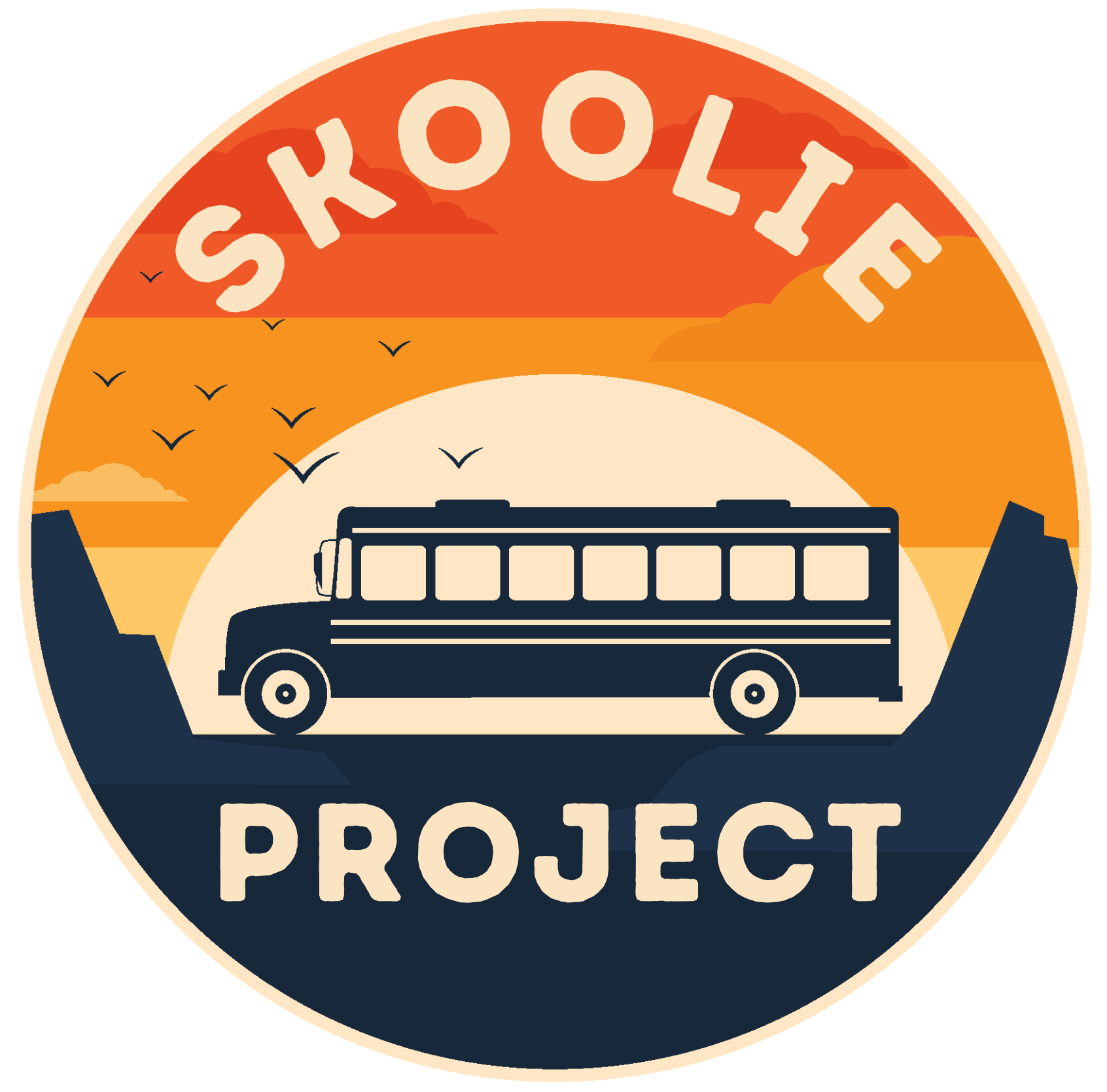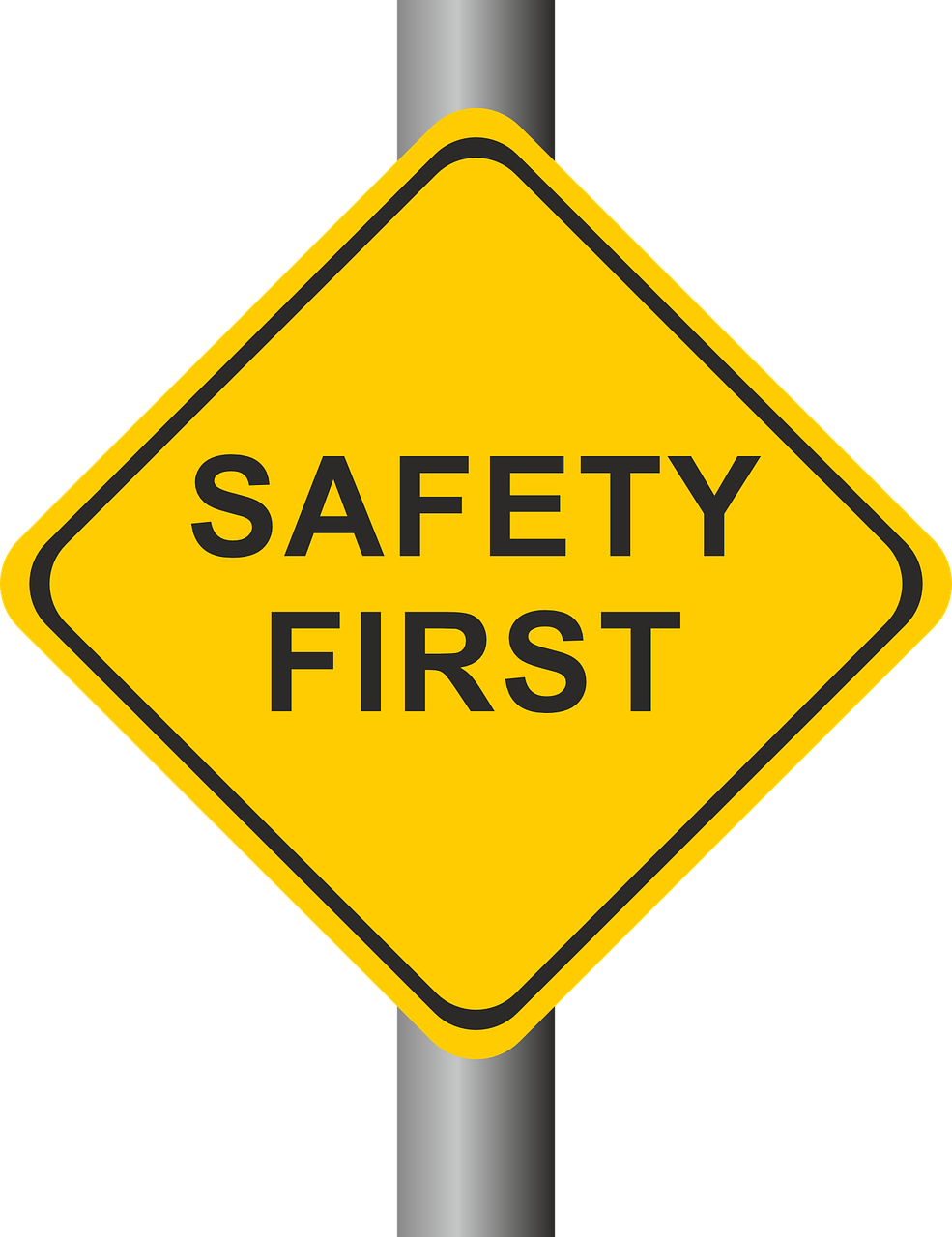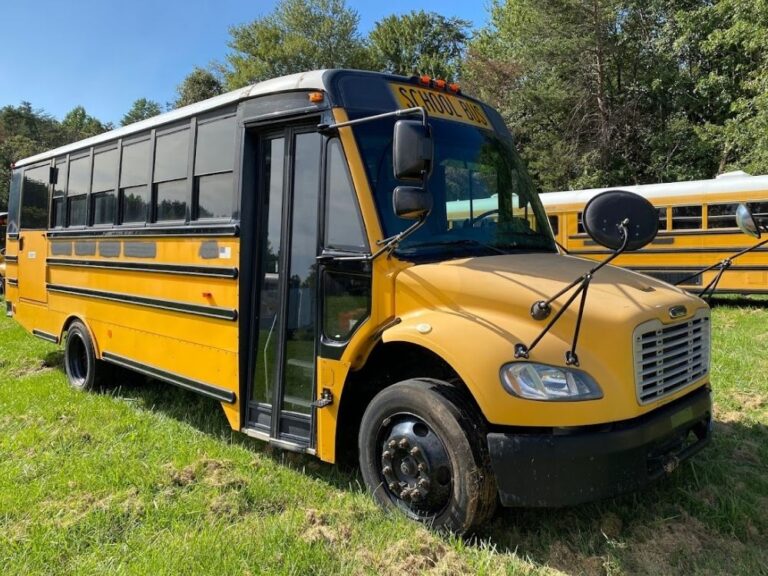Best Skoolie Safety Tips
Safety and school buses go hand and foot! I mean, stop signs, red and yellow blinking lights, stop bars, yadda yadda yadda. Skoolie safety practices are just as important for you and your family.
There are many situations where relaxed safety protocols could mean injuries to you and your family, damages to your bus, or to others.
We are talking about the Best Skoolie Safety Practices today that are logical, practical, and easy to implement.
Are Skoolies Safe To Drive?
In general, yes skoolies are safe to drive. However, that being said, if you do not maintain your skoolie, understand how your skoolie drives and have honed that skill, driving a skoolie can be extremely dangerous to you and others.
We have driven flat-nose skoolies and we have driven dog-nose skoolies. Personally, we refer to driving the dog-nose skoolie. For us, it is a more natural “feel” when driving.
If you are more comfortable driving a vehicle, then it naturally makes it a safer vehicle to operate.
Skoolie Safety – Learning How Your Skoolie Brakes
The biggest thing to remember, at least one of the biggest, is that you are driving a big heavy truck. Stopping is going to require much more linear feet than if you were driving a car or small truck.
There really is no difference between hydraulic brakes and air brakes when it comes to stopping. Both will make your skoolie stop and there is no special training or education needed for air brakes.
The mechanics of the two are different when it comes to proper air pressure for your brakes, but that topic is for a different conversation about the differences between air and hydraulic brake systems.
Skoolie Safety – Learning How To Steer Your Skoolie
Another thing to remember is to keep your tires on the road and do not dip off onto the shoulder. It is just as dangerous, actually, even more so than driving a small vehicle.
Overcompensating with your steering could have catastrophic consequences for you and your skoolie.
Everyone should practice driving their skoolie before setting out on the road full time. Understanding how your bus drives, before putting everything into your build makes a big difference.
Getting to know your bus, its sounds, rhythms, steering, and little nuances will make your driving experience not only safer but more pleasurable.
Is It Illegal To Live In A Skoolie?
It is a question so many want to know the answer to. Many people have the misconception that if you live and travel in a skoolie, you are considered homeless.
That may or may not be true, depending on an individual's personal circumstances.
There is a phrase amongst the skoolie community that describes most skoolie nomads as “houseless, not homeless”. There is a world of difference between the two.
If you would like more information about whether or not it is illegal to live in a Skoolie, check out the link for the article, Is It Legal To Live In A Skoolie in 2022?
Is A Bus The Safest Vehicle?
There are many safe vehicles to live and travel full time in. Some are definitely safer than others. There are some RVs I would never consider traveling in, much less living and traveling full-time.
Construction
One of the biggest reasons we chose to build, live and travel in a school bus conversion is because of the construction standards of a school bus.
If you have ever seen an RV in an accident you know they are not very well built and fall apart very easily.
There is a running joke amongst the RV community that where an RV is involved in an accident, they never send a wrecker to the accident scene. Instead, they send a front loader and dump truck.
As a former insurance claims manager, I have seen my fair share of RVs and their lack of construction standards that hold up to impacts. They were not designed to withstand an accident.
High Floor Level
Another big reason I prefer a skoolie over a van and another RV type of vehicle is that the floor level is around four to five feet off of the ground.
Being up off of the ground and not being “eye-level” with people who may walk up is a great security feature.
Plus, the windows sitting at around six to seven feet above the ground make it unlikely anyone can gain access through the windows. Having that higher ground clearance gives us a sense of security we deserved.
Knowing if someone approaches our skoolie with ill intent, it is good to know we have the advantage of being higher than they are.
Are Skoolies Safe?
As we have stated above, a skoolie makes for a perfect DIY conversion vehicle. Not only are they safe in an accident, but they are also safe to live in as well.
With that being said, the safety of a skoolies is only as reliable as the individual(s) who build it, maintain and travel in it.
A school bus is designed to be able to withstand its own weight in the event of a roll-over accident. The roof will not cave in on itself and thus crush its occupants.
Just Google or Youtube school bus accidents v. RV accidents and you will see the difference we are talking about. Your choice to travel and live in a DIY school bus conversion is a safe and sound one.
What Are Some Skoolie Friendly Campgrounds?
Campgrounds and specifically, RV campgrounds have gained an unfair reputation when it comes to their tolerance of skoolies staying as their guests.
There are just too many RV campgrounds that are friendly to and accommodating to Skoolies to list here.
What would be more helpful is to talk about how to change that perception and gain access to RV campgrounds with open arms.
There are some legitimate complaints to RV parks blindly not allowing skoolies as guest campers.
In defense of the RV campgrounds, many of those complaints and reasons for not allowing skoolies as campers are well deserved.
Liabilty Due To Poor DIY Construction
The RV campground is largely responsible for the safety of other guests and their RVs and property. A poorly installed electrical system on a DIY skoolie is a fire hazard waiting to happen.
RV parks know this, unfortunately, from experience. So, in order to protect themselves, they simply frown upon or right out ban DIY conversions from staying at their campgrounds.
Poor Reputation Due to Drugs and Uncleanliness
Many times, the skoolie owners are responsible for the poor reputation placed on us by their own actions. Drug use, lack of social graces of respecting quiet hours, and overall trashiness make a reputation stick.
It doesn’t matter that RV owners and campers are just as guilty and probably outnumber skoolie owners 10 to 1 in being slobs, but the skoolie stereotype is tough to shag because of the few bad ones.
How To Break The Stereotype for RV Parks
In our experience, there are ways to bypass the unjustness grimace, and banishment of RV parks. Here are the best ways to secure and keep your RV park reservations.
- The best way to get an overnigh accommodation at an RV park is to reserve your spot over the internet. This eliminates any conversations about your rig and an unfair assessment of your image and behavior before you even arrive at the park.
- When arriving at the RV park, check in promptly.
- Smile, be courteous and polite.
- Keep your Skoolie clean and presentable. (If you are wanting to play, park and camp in RV parks, then you have to play the part. Otherwise, understand and accept the consequences.)
- Keep your campsite clean
- Observe ALL of the RV park rules, especially quiet hours if you must use a generator. If you do use a generator, invest in a quiet one.
We have never had a problem getting a reservation and keeping it at any RV park or campground.
By following the guideline we have outlined above, you should not have any issues.
If you roll up in a clackity-looking and sounding school bus with marijuana smoke billowing out of your windows and you are turned away, don’t act so shocked!
Do Skoolies Need Seatbelts?
You should always refer to your state's DMV laws and regulations as it pertains to seatbelts. As it is with Florida and California law, all passengers facing forward are required to wear a seat belt.
All passengers who are under the age of 18 are required to wear a seatbelt regardless of their seat position.
That being said, it is a common-sense unwritten rule that if your vehicle is in motion, you should have some type of seat belt or safety harness attached to your person.
It should also go without saying, that standing up and moving about in a moving RV, Skoolie, Coach or any other type of overlander vehicle should never be done.
Serious injury can result with just the slightest tapping of the brakes.
Wrap Up To Best Skoolie Safety Practices
Staying safe in all situations takes common sense, planning, aforethought, situational awareness, and experience.
The more you live and travel in your skoolie, the better you will become at it. Things you do not know today, you will learn either the easy or hard way tomorrow.
The thing about it is, we are all learning this lifestyle every day. We owe it to ourselves and each other to share what we have learned through trial and error.
It is one of the things that makes this skoolie community so special.
We wrote a great informational post on Safety As A Nomadic Traveler while living and traveling in our Sprinter Van. The information in that post is perfect for skoolie life.


